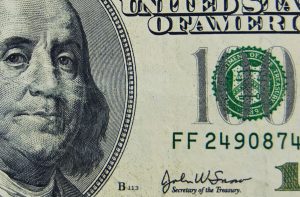 Monday, May 21, 2012
Monday, May 21, 2012
Why do people and organizations contribute to campaigns? The simple answer is “self-interest.”
People, meaning individuals like you and me, contribute because we feel some affinity for a candidate. We agree with what he or she believes and/or we’re hopeful that the candidate, once in office, will do good for our country, our state, whatever, and for our families. Ours is a relatively small contribution that is passive in that we don’t expect anything specific for our money except to help our candidate get elected. We have no expectation of access or ongoing influence.
Organizations, on the other hand, can afford to be more proactive. The unpleasant reality of politics is that organizations, particularly those that contribute large, material sums of money to candidates, expect more. They expect access to that candidate and, therefore, the opportunity to influence the legislation he supports.
Senator Ben Cardin is on a number of committees, as all Senators are. Committees are essential to the legislative process. One of Senator Cardin’s committee memberships is with the Senate Committee on Finance’s Subcommittee on Health Care. This Subcommittee has 16 members, including 7 Republicans and 9 Democrats of which Senator Cardin is one. Jay Rockefeller (Democrat, West Virginia) is the Chairman.
To be clear, just because an organization or group of organizations from a given industry contributes to your campaign doesn’t mean you do their bidding. Of course not. And no one expects, not really, that a candidate will return or decline money from reputable organizations behaving legally. I mean, who does that? What taking these contributions does mean is that the contributing organizations get access to the elected officials whose candidacies they support, access that you and I don’t.
We can email our officials or send them regular mail and someone on the official’s staff may or may not get back to us. Large contributors, on the other hand, can pick up the phone and the official will take that call, even meet with them to discuss prospective or pending legislation. Big money delivers a very different relationship with the elected official. Maybe he doesn’t agree with these large contributors. Maybe he was going to vote the way they hoped he would anyway. Who knows? The only thing we know for sure is that the candidate needs money to get elected and re-elected, that these organizations have special access to the candidates, access that their contributions have effectively purchased for them – and that organizations don’t continue to contribute to campaigns for elected officials who disagree with those organizations’ points of view, who don’t, in other words, vote their way.
According to Federal Election Commission data, since he ran for the Senate the first time through March 31, 2012, Senator Cardin has collected a total of $5,257,844 from 677 organizations. (To be fair, he’s collected a lot more from individuals, a total of 10,491 contributions totaling $9,044,339 since he started running for the Senate the first time.) Of the $5,257,844, the top 3 contributors were the Democratic Senatorial Campaign Committee ($1,197,037), the Democratic State Central Committee of Maryland ($637,000) and something the FEC describes as “Via Ben Cardin for Congress” ($300,000). The remaining $3,123,807 has come from 674 organizations, large and small, representing various economic interests.
I copied the FEC data and did my best to categorize the 674 organizations by the nature of their industry. Admittedly, it wasn’t a perfect process, but it’s close. If anything, my numbers understate the extent of contributions a given industry has made. Let me encourage you to go to the FEC website yourself and do your own analysis of data available in the FEC’s various reports.
From what I can tell, 43 organizations representing medical industry interests have given the Cardin campaign a total of $563,946. You can click on the link I just gave you and see the list. I am, of course, focusing on these 43 because Senator Cardin is on the Subcommittee on Health Care. Of the 43, here are the top 5 in descending order by the total they have contributed:
American Medical Association PAC… $141,588
American Hospital Association PAC… $64,757
American Physical Therapy Association Physical Therapy PAC… $17,000
American Society of anesthesiologists PAC… $16,000
National Emergency Medicine PAC… $16,000
I included the first 5 to show how rapidly the amounts contributed drop off after the first 2 on the list. The average contributed per organization is $13,115.
$141,588 from the American Medical Association PAC is a lot of money. So is $64,757 from the American Hospital Association PAC.
To be clear, these data do not, in and of themselves, confirm any improper behavior on Senator Cardin’s part. Of course not. What they do is give Maryland voters every right to ask Senator Cardin about the access that at least the top 2 names on this list had to his office and, specifically, to what end. As I am sure Senator Cardin will agree, it’s a reasonable question and it’s essential that the voters hear what he has to say.
-Next Contestant

